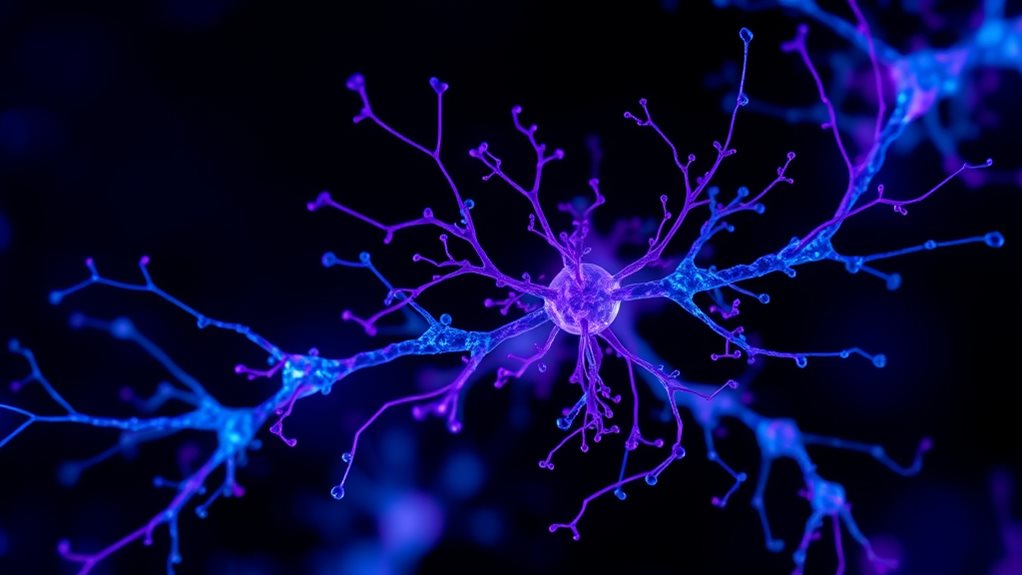Gut Health & Weight Loss: The Connection You Need to Know
You've probably heard that your gut health affects your weight, but you might not realize just how powerful this connection really is. Your digestive system isn't just processing food—it's hosting trillions of microorganisms that influence everything from your cravings to how your body stores fat. If you're struggling to reach your weight loss goals despite diet and exercise, the answer may lie in the complex ecosystem living within your intestines.
Key Takeaways
A healthy gut microbiome regulates appetite hormones and reduces inflammation, making weight loss more achievable.
Beneficial gut bacteria help convert dietary fiber into short-chain fatty acids, improving metabolism and insulin sensitivity.
Gut dysbiosis leads to increased sugar cravings, inflammation, and difficulty losing weight.
Fermented foods and prebiotic-rich ingredients support beneficial bacteria growth and enhance weight management efforts.
Regular exercise and stress management strengthen the gut-weight connection by promoting healthy bacterial balance.
Understanding Your Gut Microbiome and Weight Management

While scientists once overlooked the role of gut bacteria in weight management, research now shows that your microbiome markedly influences how your body processes food and stores fat.
Your gut contains trillions of microorganisms that help digest food, produce essential nutrients, and regulate metabolism.
The balance of beneficial versus harmful bacteria in your gut can impact your weight in several ways. When you've got a healthy microbiome, it helps control appetite hormones, reduces inflammation, and enhances your body's ability to extract energy from food efficiently.
However, an unhealthy gut environment can lead to increased fat storage, insulin resistance, and constant cravings for high-calorie foods.
Understanding your gut microbiome's role is vital because it can help you make dietary choices that support both beneficial bacteria and weight loss goals.
Testosterone bioavailability can be significantly affected by your gut bacteria balance, which may impact your body's ability to maintain a healthy weight.
The Role of Beneficial Bacteria in Fat Metabolism
Although scientists are still uncovering new details, research confirms that beneficial gut bacteria play an essential role in how your body processes and stores fat.
Your gut microbes affect metabolism by influencing how your body absorbs nutrients, regulates blood sugar, and stores energy.
Certain beneficial bacteria help break down dietary fiber into short-chain fatty acids, which reduce inflammation and improve insulin sensitivity. They also produce compounds that signal your brain to feel full and regulate appetite hormones like ghrelin and leptin.
Additionally, healthy gut bacteria can decrease fat storage by reducing the absorption of dietary fat and increasing the rate at which your body burns calories.
You'll support these beneficial bacteria by eating fermented foods, consuming plenty of fiber, and limiting processed foods and artificial sweeteners.
Maintaining adequate zinc levels helps preserve the intestinal barrier function that keeps these beneficial bacteria thriving while blocking harmful toxins.
Gut Dysbiosis: How Poor Gut Health Sabotages Weight Loss
When your gut microbiome becomes imbalanced, a condition known as dysbiosis occurs, making weight loss considerably more difficult. This imbalance can trigger inflammation, disrupt your metabolism, and alter how your body processes calories and stores fat.
During dysbiosis, harmful bacteria outnumber beneficial ones, leading to increased intestinal permeability or "leaky gut." This allows toxins and undigested food particles to enter your bloodstream, triggering systemic inflammation and insulin resistance.
You'll likely experience increased sugar cravings, reduced nutrient absorption, and compromised appetite regulation.
Your gut's ability to extract energy from food changes during dysbiosis, potentially causing your body to harvest more calories from the same amount of food.
To combat this, you'll need to restore microbial balance through diet modifications, stress management, and possibly probiotic supplementation.
Studies show that supplementing with Lactobacillus and Bifidobacterium strains can help restore healthy gut flora and support weight management efforts.
Diet Strategies to Support a Healthy Gut-Weight Balance

Since restoring gut health is essential for successful weight loss, implementing the right dietary strategies can help rebalance your microbiome while supporting your weight management goals.
Focus on consuming fermented foods like kimchi, kefir, and sauerkraut to introduce beneficial bacteria. Add prebiotic-rich foods such as garlic, onions, and Jerusalem artichokes to feed these good bacteria.
You'll want to eliminate processed foods, artificial sweeteners, and refined sugars that can harm your gut flora. Instead, opt for fiber-rich whole grains, leafy greens, and colorful vegetables.
Include anti-inflammatory foods like fatty fish, olive oil, and turmeric to reduce gut inflammation.
Don't forget to stay hydrated with water and unsweetened green tea, which can promote healthy digestion and support your gut barrier function.
Research shows that adding green tea extract to your diet can boost your metabolic rate by 3-4% over 24 hours while supporting healthy gut function.
Lifestyle Habits That Strengthen Your Gut-Weight Connection
Beyond dietary changes, specific lifestyle habits play an essential role in strengthening the connection between your gut health and weight management.
Regular exercise stimulates healthy gut bacteria and improves digestion, while adequate sleep helps regulate appetite hormones and reduces inflammation. You'll benefit from practicing stress management techniques like meditation or yoga, as chronic stress can disrupt your gut microbiome and lead to weight gain.
Stay hydrated by drinking water throughout the day to support digestive function and nutrient absorption. Limit alcohol consumption and avoid smoking, as these habits can harm beneficial gut bacteria.
Consider establishing a consistent eating schedule to help your digestive system work more efficiently. When you combine these lifestyle modifications with proper nutrition, you'll create an environment where your gut and weight goals can thrive together.
Frequently Asked Questions
Can Antibiotics Permanently Damage My Gut Microbiome and Affect Weight Loss?
While antibiotics can disrupt your gut microbiome, the damage isn't necessarily permanent. Your gut bacteria can recover, though it may take several months.
To protect your microbiome during and after antibiotic treatment, you'll want to eat probiotic-rich foods and consider taking supplements.
Yes, this disruption can temporarily affect your weight management, but you can support your gut's recovery through a balanced diet and healthy lifestyle choices.
How Long Does It Take to Notice Weight Changes After Improving Gut Health?
You'll typically notice weight changes within 4-8 weeks after improving your gut health, though individual results vary.
You might experience initial water weight fluctuations in the first few days.
Long-term, sustainable changes usually become apparent after 3 months of consistent gut-healthy habits.
Do Probiotics From Supplements Work Differently Than Those From Fermented Foods?
Yes, probiotic supplements and fermented foods work differently in your body.
While supplements typically contain specific strains in concentrated doses, fermented foods offer a wider variety of probiotics along with beneficial nutrients and fiber.
Your body often absorbs probiotics from natural food sources more effectively, and they tend to survive better in your gut.
However, supplements can be helpful when you need targeted strains or can't consume fermented foods regularly.
Can Poor Gut Health Cause Weight Gain Even With Regular Exercise?
Yes, your poor gut health can lead to weight gain even if you're exercising regularly.
When your gut microbiome is imbalanced, it affects how you process food, regulate blood sugar, and store fat.
You'll likely experience increased inflammation, altered hormone production, and reduced nutrient absorption.
Even with consistent workouts, these gut-related issues can override your fitness efforts and make it harder to maintain a healthy weight.
Are There Specific Gut Bacteria Strains That Specifically Target Belly Fat?
While no single bacterial strain specifically "targets" belly fat, certain beneficial bacteria can help reduce overall body fat, including abdominal fat.
You'll want to focus on strains like Lactobacillus gasseri, which studies show may help reduce waist size and belly fat.
Bifidobacterium lactis and Lactobacillus rhamnosus have also shown promising results in supporting weight management.
Conclusion
Your gut health and weight loss journey are deeply intertwined. When you're nurturing your microbiome through smart food choices and lifestyle habits, you're setting yourself up for weight loss success. By focusing on fermented foods, fiber-rich options, and stress management, you'll create an environment where beneficial bacteria thrive. Remember, a balanced gut isn't just about digestion - it's your secret weapon for sustainable weight management.
